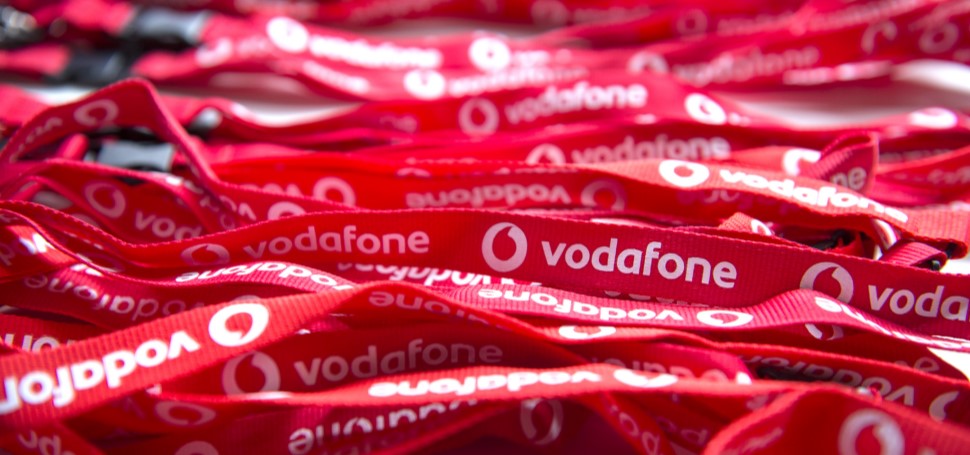Acquisitions, sales and tower spin-offs: Vodafone's eventful July
Vodafone's month hints at future strategy

As the operator responsible for the first mobile phone call in the UK, Vodafone has a long and storied history in the world of telecommunications.
But July 2019 will go down as one of the more eventful months in Vodafone’s 30 year history. It started with the launch of 5G services in the UK and concluded with the takeover of Liberty Global’s central European cable networks.
But in truth, the Newbury-based operator has rarely been out of the headlines. Aside from product launches and acquisitions, there have been sales, spin-offs, and tales of boardroom politics.
The events have not only underlined the challenges facing the company but have also given an even clearer indication of the company’s future strategy.
- Vodafone agrees deal for Liberty assets
- Vodafone-Liberty deal is big for EU telecoms
- 5G in the UK: the what, where and how much
Takeovers
Convergence has been the buzzword at Vodafone UK for several years. Achieving growth has become more difficult in the mobile market, meaning the company has moved to aggressively expand its fibre footprint through network builds, acquisitions and partnerships.
The €18.4 billion takeover of Liberty Global assets in the Czech Republic, Germany, Hungary and Romania was one the final acts of former CEO Vittorio Colao’s tenure and is designed to accelerate this strategy even further.
Earlier in July, Vodafone received EU approval for the transaction – one of the final barriers to completion– and on the final day of the month, the deal was sealed.
Are you a pro? Subscribe to our newsletter
Sign up to the TechRadar Pro newsletter to get all the top news, opinion, features and guidance your business needs to succeed!
But the takeover has increased Vodafone’s debt and its balance sheet, leading some to question the wisdom of the deal at a time when significant capital is required to invest in the spectrum and infrastructure upgrades required for 5G networks.
The 5G spectrum auctions in Germany and Italy in particular have resulted in a couple of nasty surprises – and billions of euros in licensing fees.
Dividend cut
These factors, along with others, resulted in the company announcing it would reduce its dividend for the first time as an independent company. Such a move would be unpopular at the best of times, but investors are usually more tolerant if the cut is used to fund a major investment programme that promises long-term gains.
However, Vodafone shareholders – already concerned at the declining value of their stakes – were reportedly unhappy at the move because the company had promised only six months prior that the dividend would not be slashed.
In a bid to appease shareholders, both Group CEO Nick Read CFO Margherita Della Valle requested a 20 per cent cut in their share bonuses.
Vodafone has undertaken several measures to reduce its debt pile, including the sale of Vodafone New Zealand for €2.1 billion – a deal also completed on the final day of the month.
Tower spin-off
But it is through infrastructure sharing and monetisation that Vodafone sees the most promise – not just in improving its balance sheet, but also in making network rollout more efficient.
Vodafone has more than 110,00 towers across the continent, estimated to be worth more than €12 billion. These assets have the capability to generate new revenue streams and accelerate the pace and scope of its 5G rollout.
It’s why earlier this month, Vodafone confirmed plans to create Europe’s largest tower company, commanding control of nearly 62,000 towers in ten countries. The company is tasked with identifying monetisation options - such as offering space to third parties - and could eventually float on the stock exchange.
Any revenue generated from the business or from an IPO would be used to reduce its debt.
Networking sharing
Vodafone itself is pursuing an active and passive network sharing strategy, believing this will enable it to roll out 5G quicker, cheaper and faster, as demonstrated by two other deals this July.
In the UK, Vodafone has expanded its passive infrastructure sharing agreement with O2 to cover 5G. The ‘Cornerstone’ joint-venture will have greater powers will be given to Cornerstone in order to improve efficiencies and identify monetisation options.
And in Italy, Vodafone is merging its masts into TIM’s tower business in exchange for cash and a stake in the company. The enlarged INWIT will now control 22,000 masts, increasing the potential for monetisation, and will have two anchor tenants in the form of TIM and Vodafone Italy.
As one of the world’s largest mobile operators, its never dull at Vodafone. The past decade has seen it contend with challenging market conditions, make major acquisitions and sales, and embark on major investment programmes.
There’s no doubt that there are challenges ahead, but a bounce in the firm’s share price suggests the moves it has made are inspiring some confidence among investors about its future prospects.
For now, however, it will be hoping that August is quieter than July.
- Best Vodafone mobile deals of August 2019
Steve McCaskill is TechRadar Pro's resident mobile industry expert, covering all aspects of the UK and global news, from operators to service providers and everything in between. He is a former editor of Silicon UK and journalist with over a decade's experience in the technology industry, writing about technology, in particular, telecoms, mobile and sports tech, sports, video games and media.